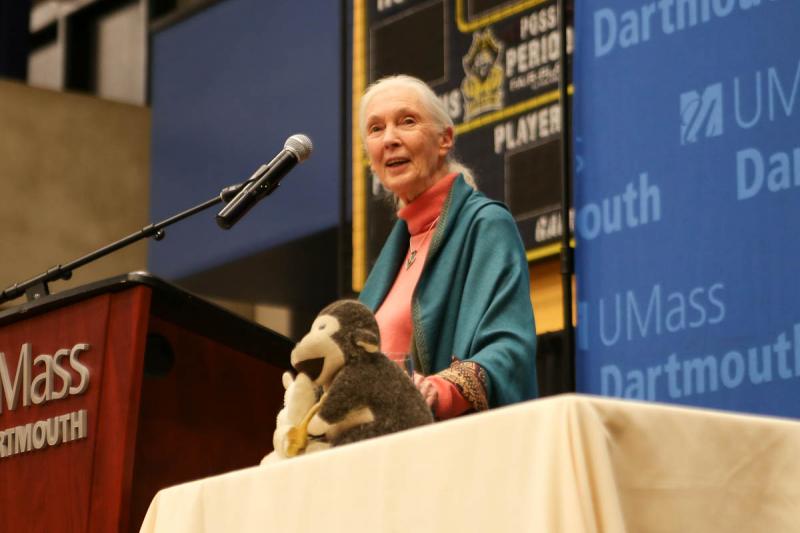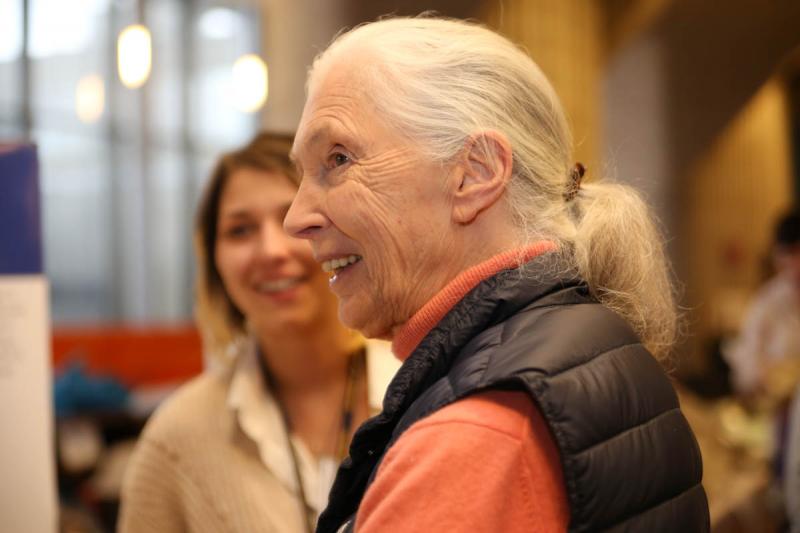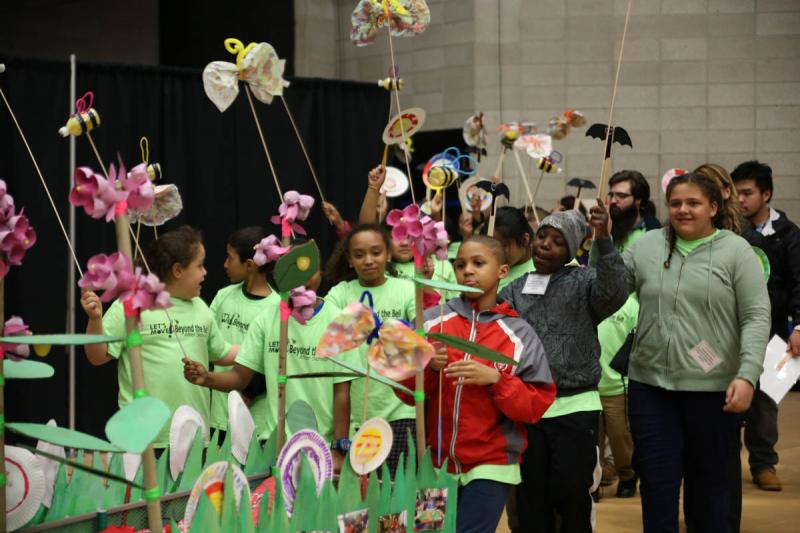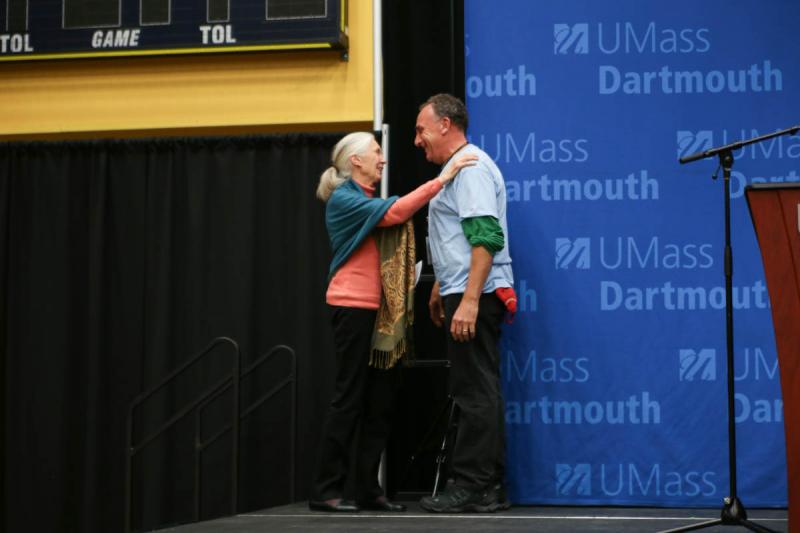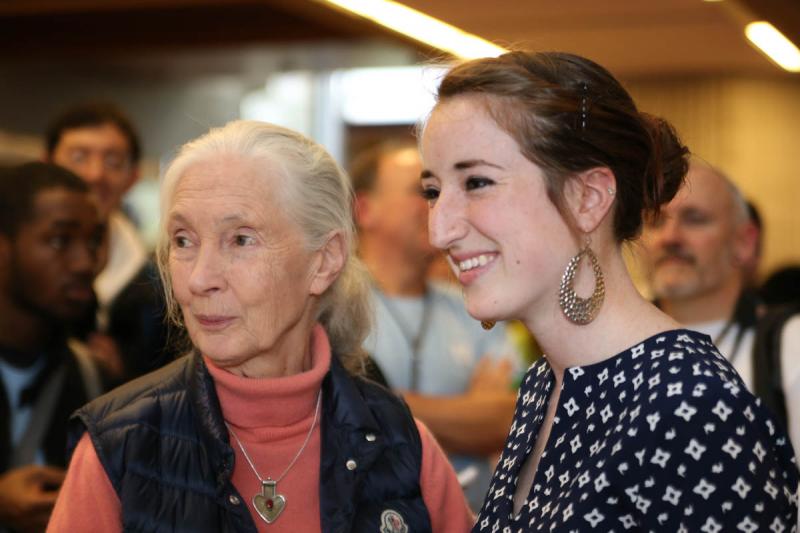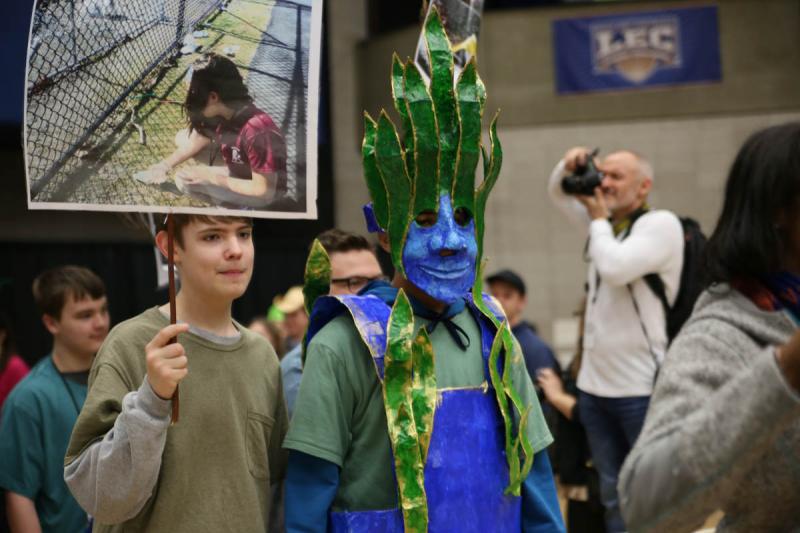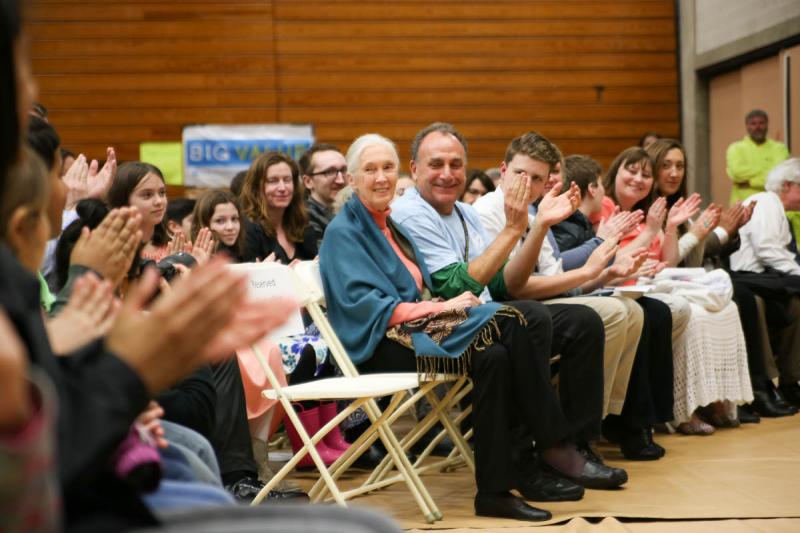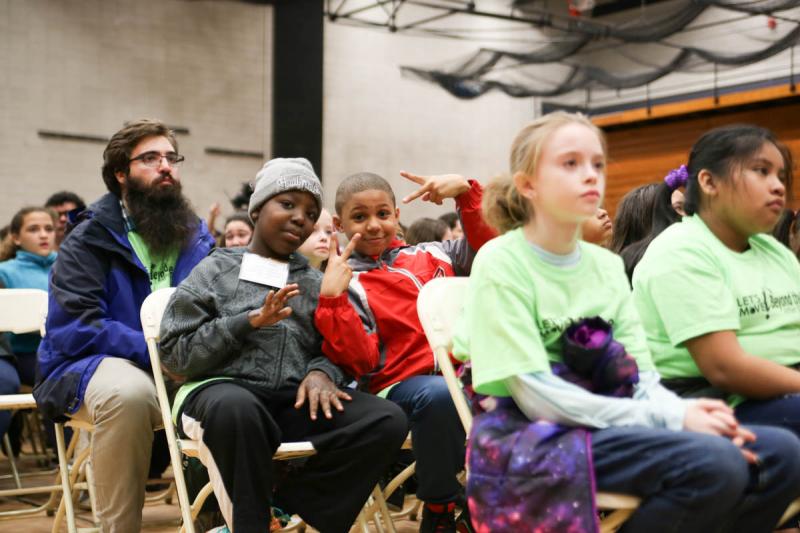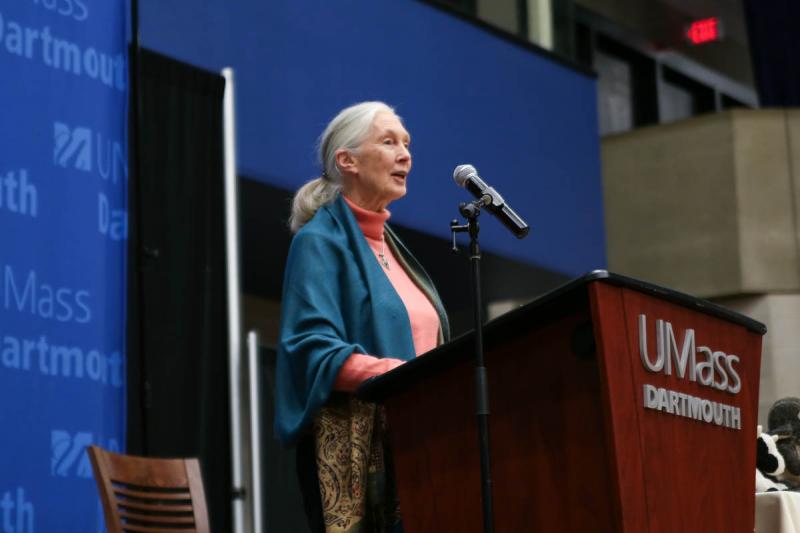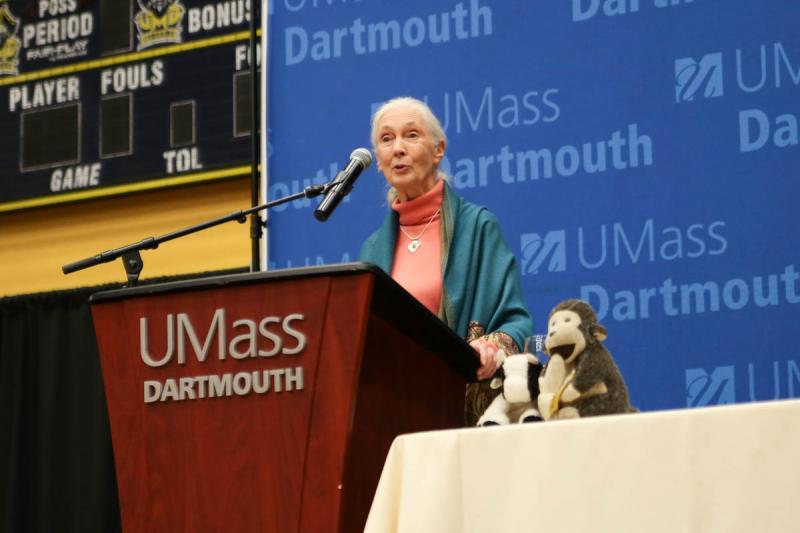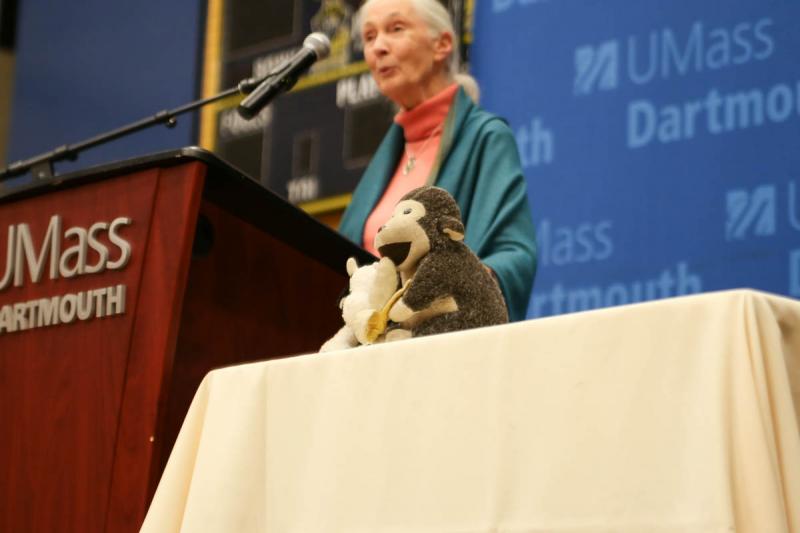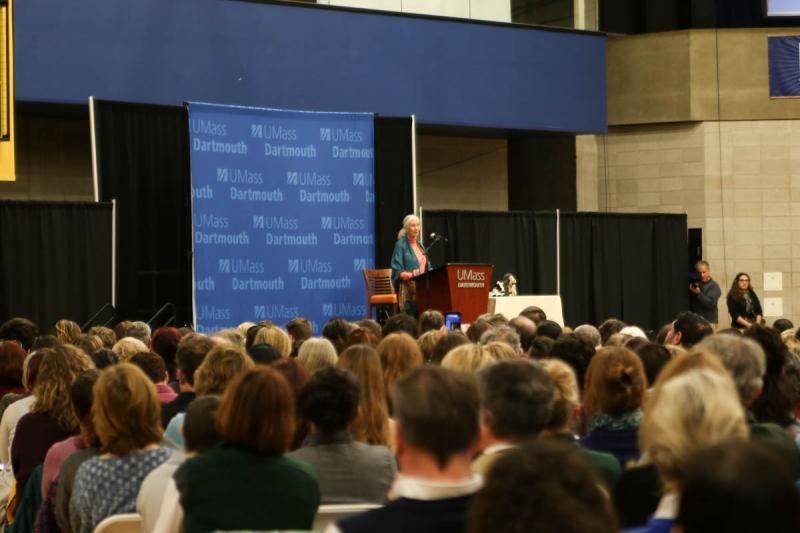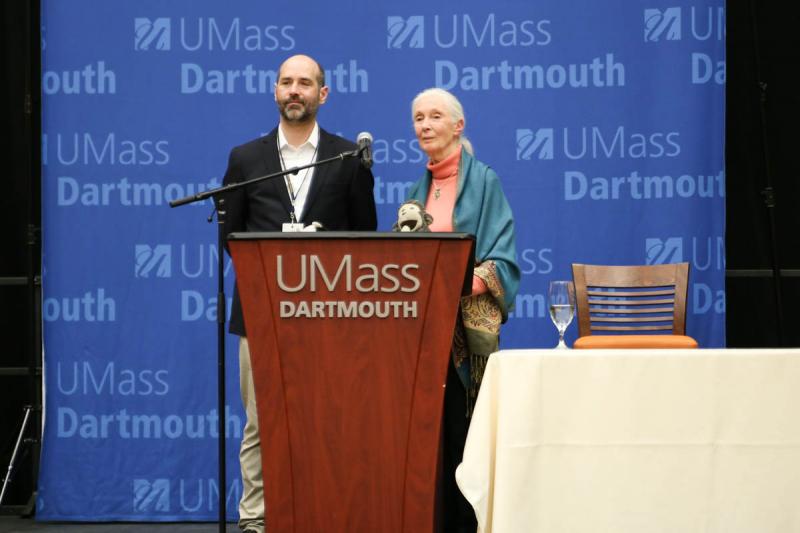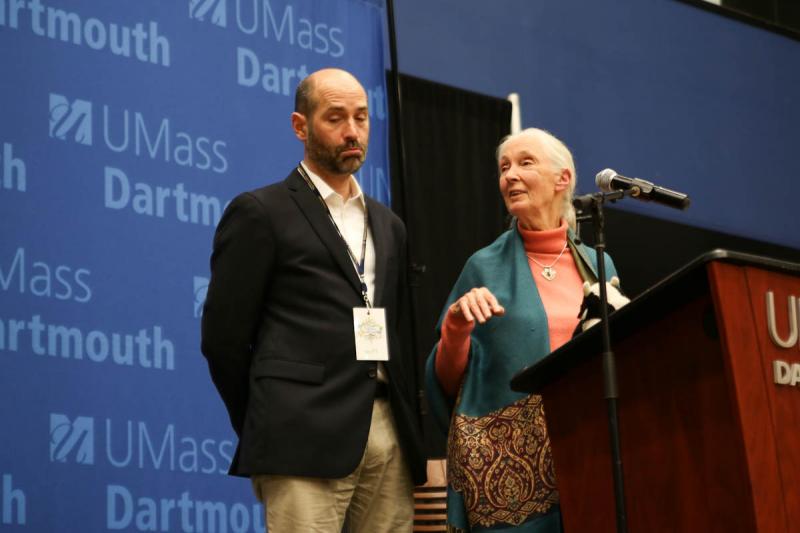Dr. Jane Goodall brings message of hope to UMass Dartmouth
Fifty-five years of research among the chimpanzees have not slowed Dr. Jane Goodall down. In fact, at age 82, Goodall has more work to do than ever.
Goodall, who travels 300 days out of the year, took the day on Thursday, April 7 to visit UMass Dartmouth.
Students and environmental organizations from across the South Coast gathered in the Claire T. Carney Library to share their projects with Goodall. Ranging from butterfly migration patterns to engineering to sustainability, a wealth of topics were on display for the public and Goodall to enjoy. She took the time to tour 24 tables, offering remarks and commending the teams behind each project for their hard work.
Due to the rain, the parade across campus had to be cancelled. However, attendees still got to enjoy a screening of a film about Roots and Shoots, Goodall’s global youth-led organization. A select few students got to enjoy dinner with Goodall away from all the hubbub after having their essays culled from over 400 submissions.
In the Tripp Athletic Center, Goodall was greeted by hundreds of attendees who listened to her lecture titled Gombe and Beyond. As a child, Goodall had a great love for nature and animals. As a young girl, her favorite book was “The Adventures of Tarzan.”
“I loved Tarzan [but] he married the wrong Jane,” she joked to uproarious laughter.
Her mother was her first supporter, never getting mad when she would bring home handfuls of earthworms or other creatures.
Goodall talked about her early days with archaeologist Louis Leaky who gave Goodall her first big break through when they met in Kenya. However, she had to waitress for several months to be able to afford the roundtrip fare.
“Work very hard and take advantage of every opportunity,” Goodall advised the crowd.
Leaky selected her to observe chimpanzees after being in Kenya for a year. She was sent to current-day Tanzania where, after four months, she would make her crowning breakthrough. A chimpanzee who she had named David Greybeard used stalks of grass to “fish” for termites to eat. Up until then, it was thought that only humans were capable of making and using tools.
After this finding, just as her money was running out, National Geographic agreed to continue funding Goodall’s research.
Over time, Goodall discovered that chimpanzees were capable of creating family bonds, having complex social lives, and experiencing a wealth of emotions, just as humans do. Moreover, the chimps that thrived best had mothers that were protective, nurturing, and supportive, “just like my mother was supportive to me,” Goodall added.
She went on to have an “idyllic” life that she decided to disrupt after, in 1980s, chimpanzee numbers began to drop. Often, they were hunted or became the subject of scientific experimentation for disease research.
“I knew I had to do something,” Goodall said.
It was around then that she became more conscious of issues surrounding carbon emissions, forest razing, and meatpacking, which all feed into global warming.
In her travels, Goodall began meeting more and more young people who are “depressed” and “angry” because “you adults have compromised our future and there’s nothing we can do about it.”
“There’s a saying which some of you may have heard, we haven’t inherited this planet from our parents, we’ve borrowed it from our children. We haven’t borrowed it, we stole it,” she added.
And so, Roots and Shoots was born. Now in 140 countries with over 100,000 student groups from preschool to university-aged kids, the organization started 25 years ago with 12 high school students in Tanzania. Since then, the groups have created their own curriculums dedicated to people, animals and the environment. Above all, Roots and Shoots is to remind people that there is hope, Goodall said.
“Every one of us makes a difference,” she said.
Though she’s had her setbacks, Goodall has never struggled to stay motivated because she knew there was always more to be done. Her advice to young people was to find something they’re passionate about, whether it be saving the environment or feeding the homeless.
Goodall’s parting message to students here on the South Coast was “Think about the small choices. Remember, you matter, what you do matters.”
The fun didn’t end there, however. Just before breaking for book-signing, Goodall, whose birthday was on April 3, was serenaded with a rousing rendition of “Happy Birthday.”
